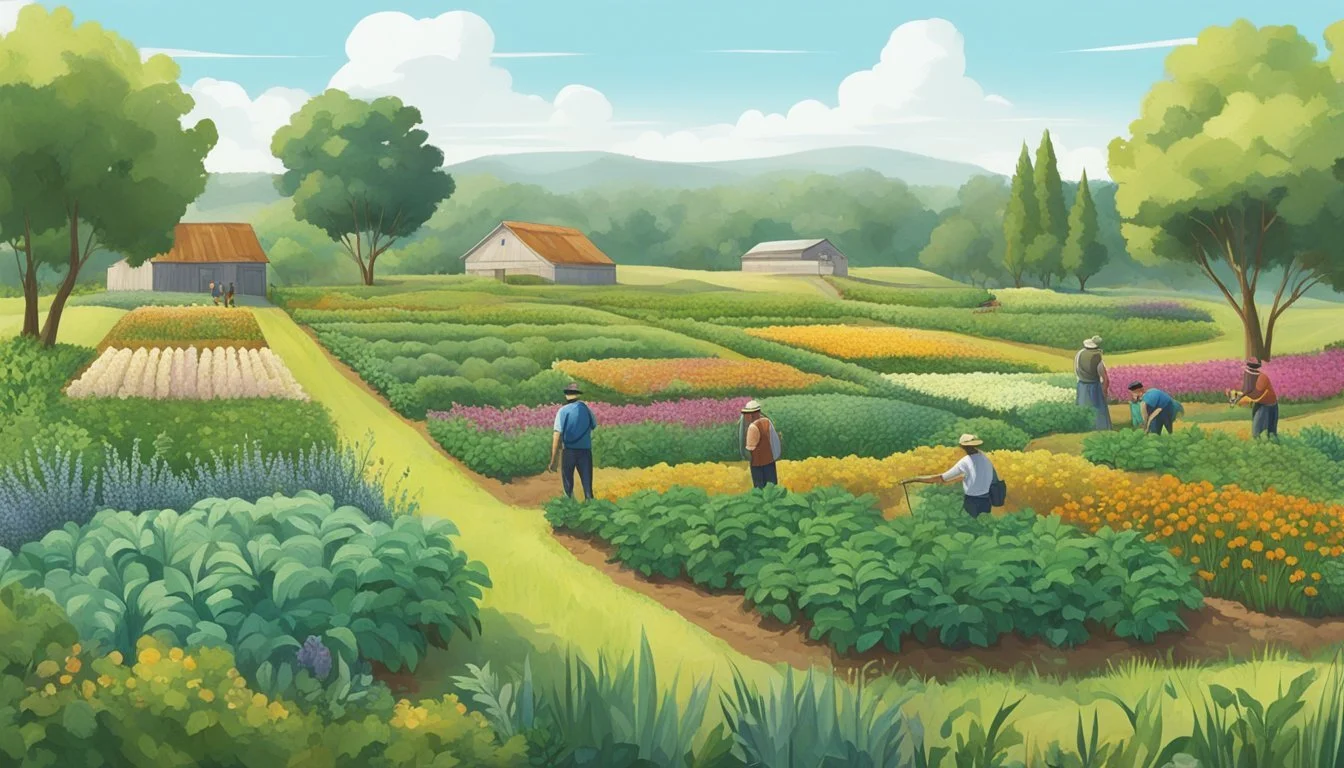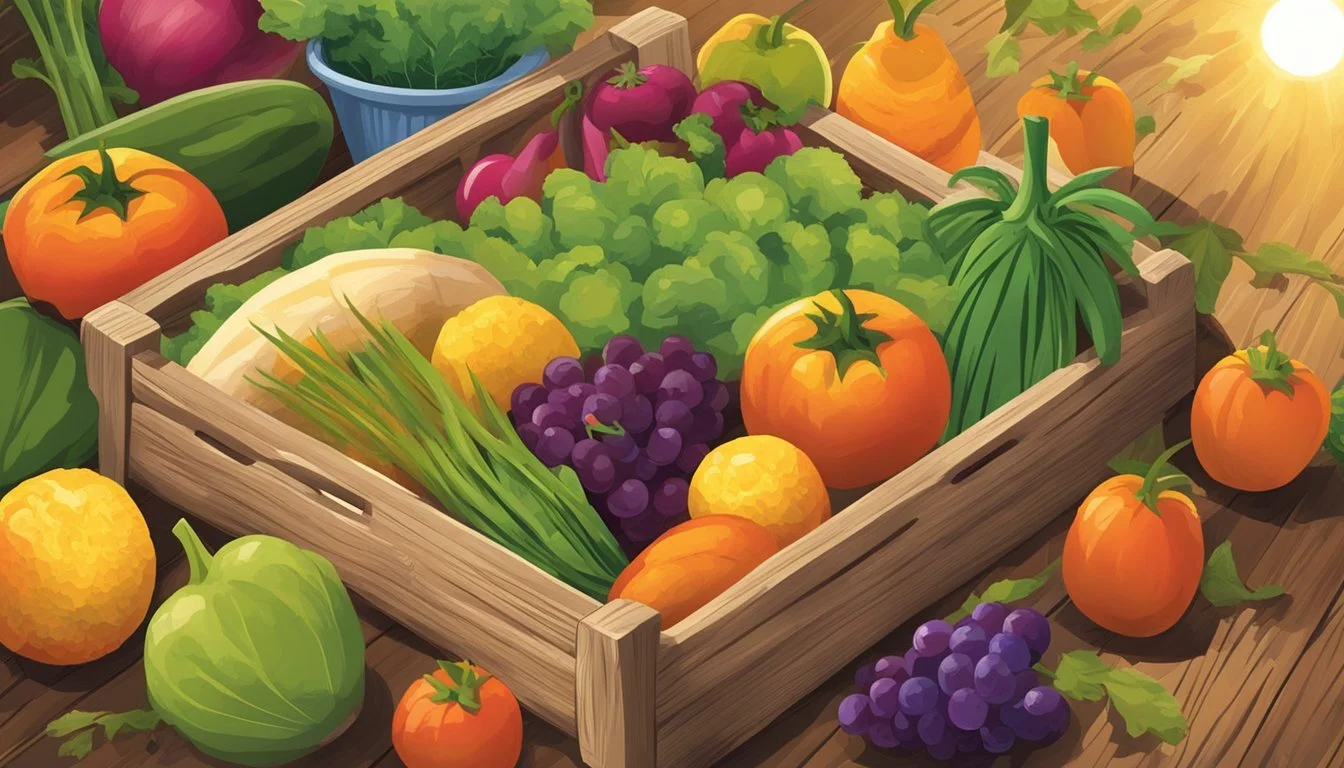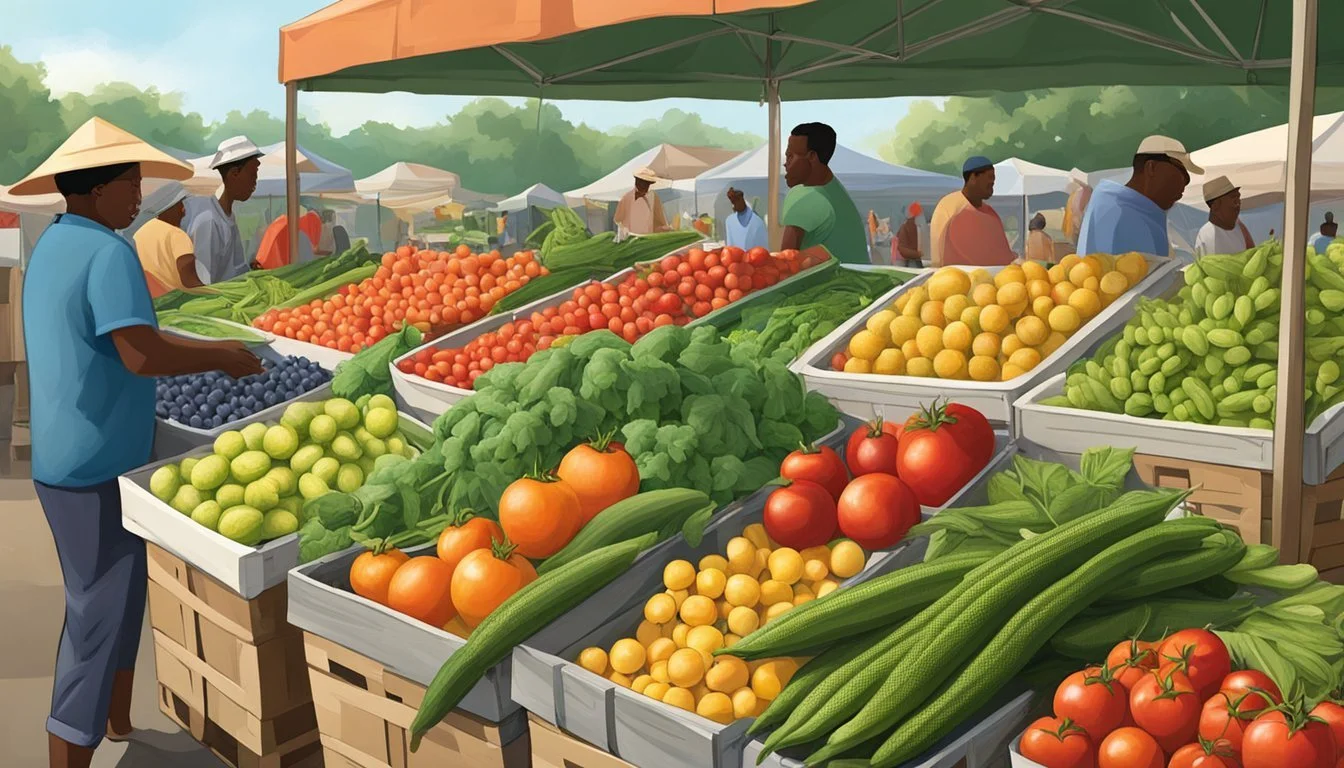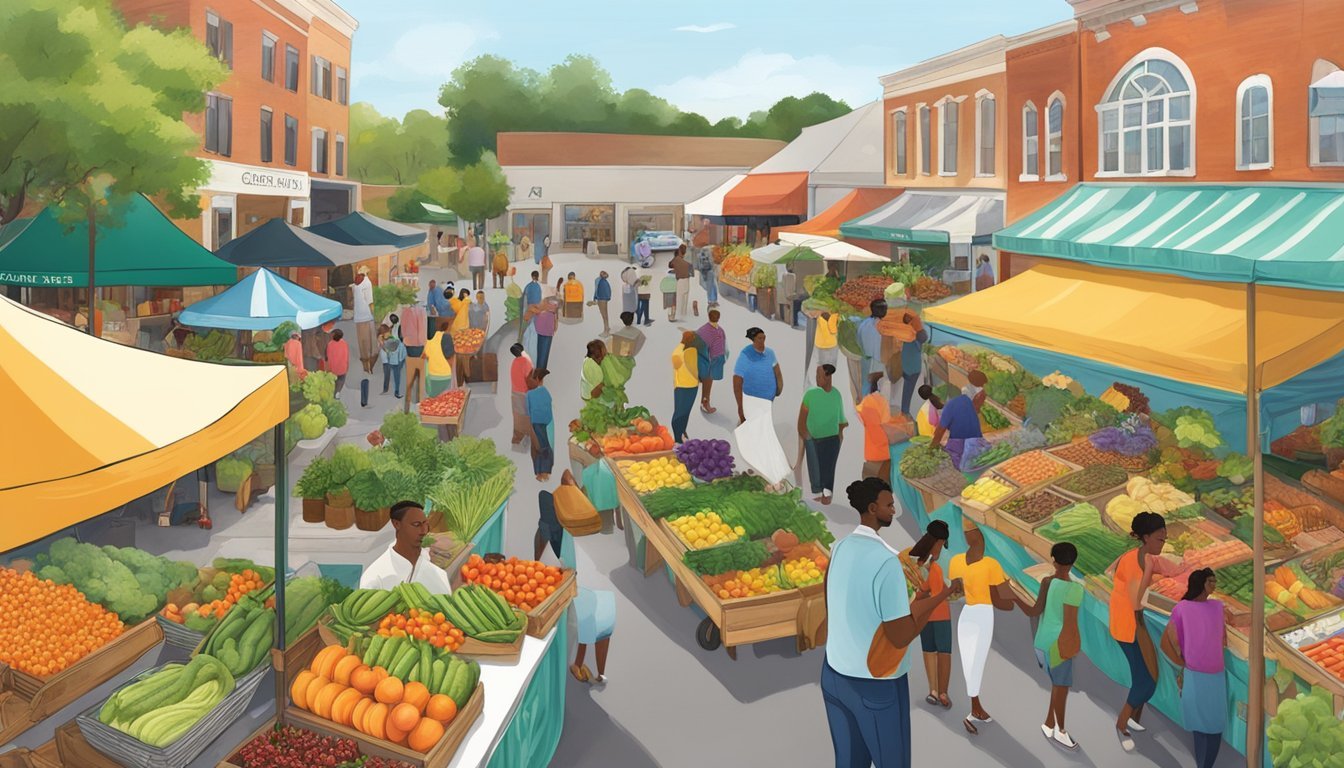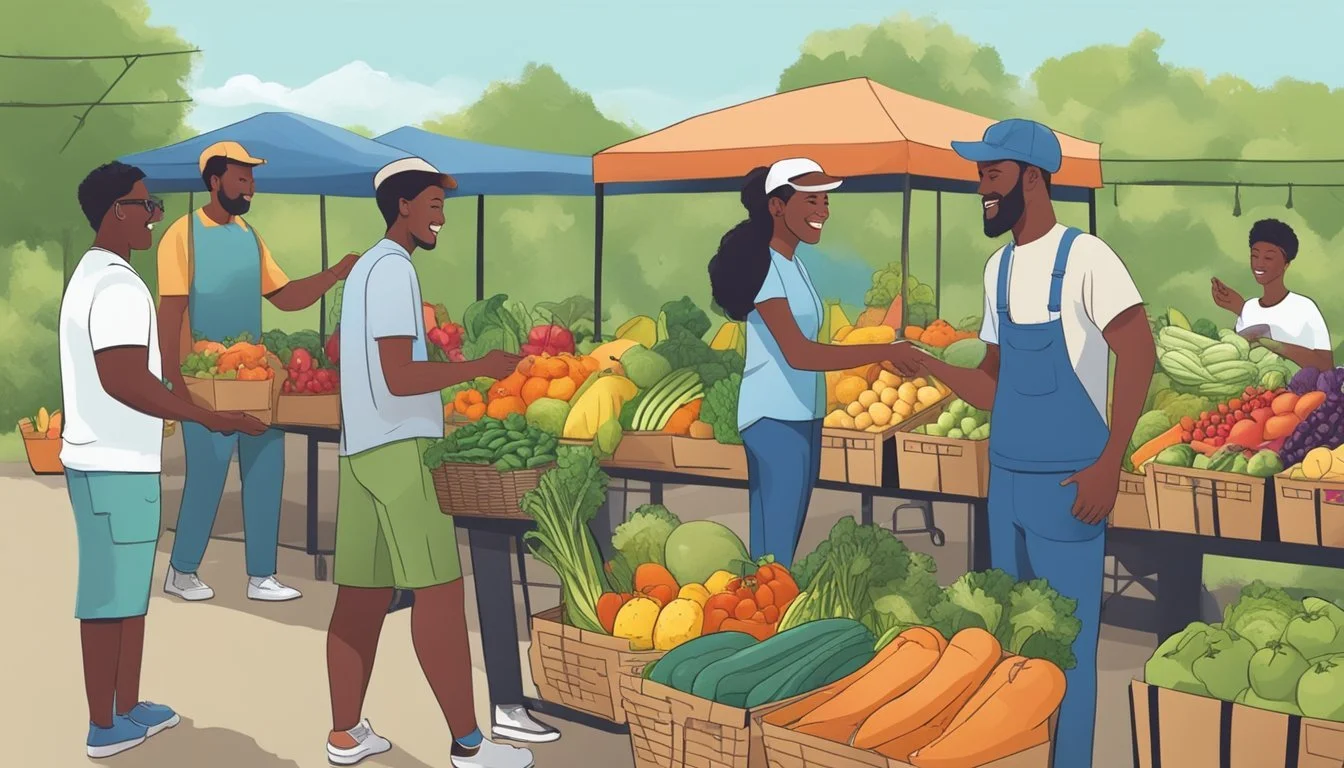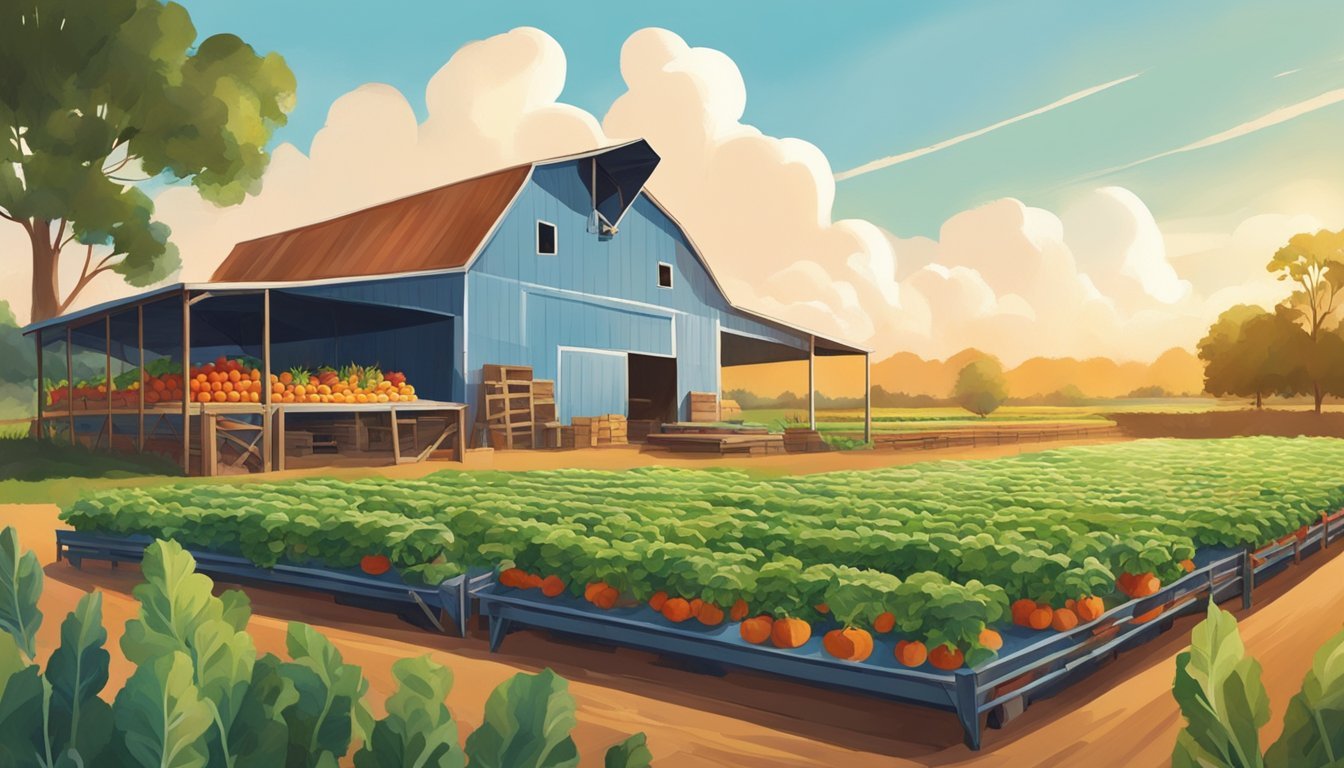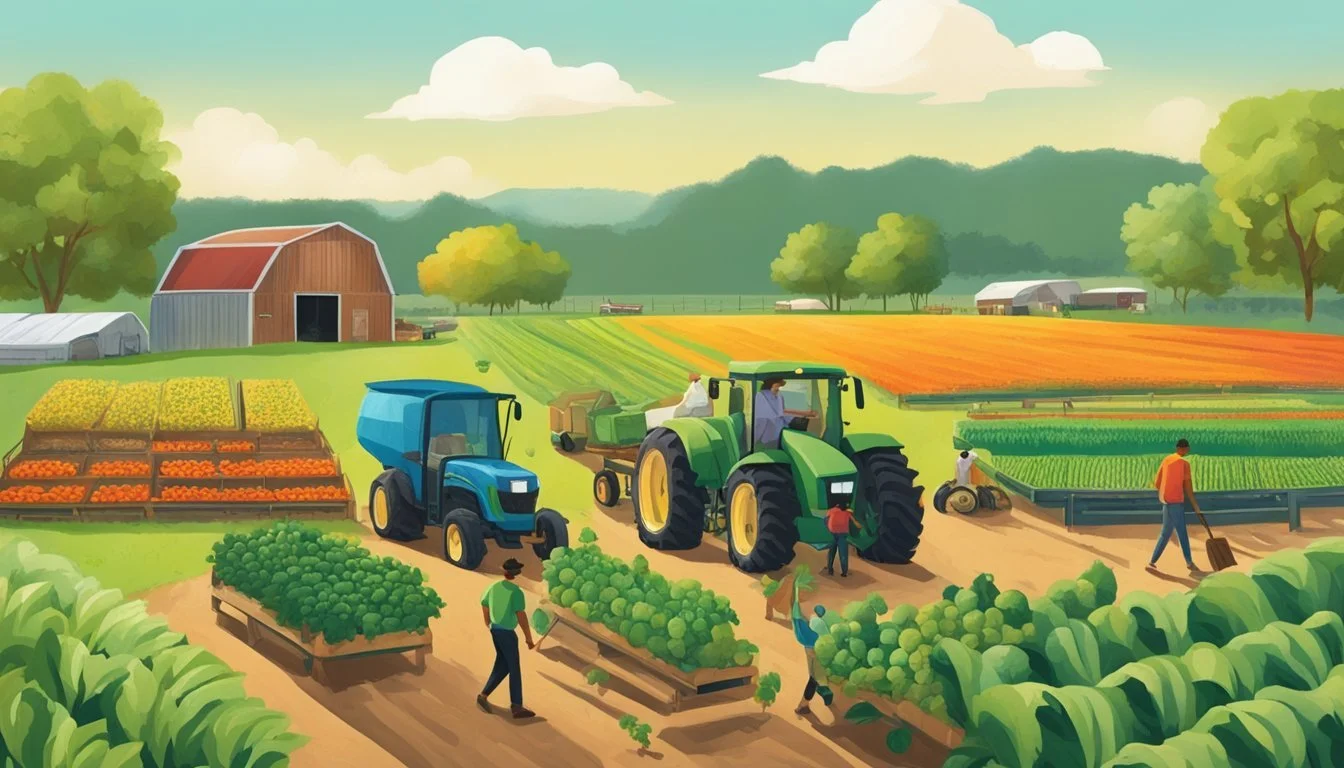Community Supported Agriculture (CSA) in Louisiana
A Guide to Local Farm Partnerships
Community Supported Agriculture, commonly known as CSA, is a model that has gained traction in Louisiana, connecting consumers directly with local farmers. Through this system, individuals purchase shares or memberships from local farms and in turn, receive a portion of the farm's produce throughout the harvesting season. This not only fosters economic stability for farmers engaged in traditional family farming by providing them with upfront capital but also ensures that the community has access to fresh, locally-sourced food.
In Louisiana, the CSA model emphasizes the relationship between the farmer and the consumer. It is an investment in both the agricultural and economic health of the local area. Patrons of CSA in Louisiana enjoy seasonal vegetables and other farm products, knowing they are contributing to the local economy and receiving goods cultivated within their own community.
The framework of CSA in Louisiana is designed to support local food systems and encourage sustainable farming practices. CSA members typically receive weekly deliveries of fresh produce, which may include a variety of vegetables and occasionally other farm products like fruits, herbs, and honey. This setup not only provides transparency about the food's origin but also introduces consumers to new types of produce they might not otherwise encounter in a conventional grocery store setting.
Understanding CSA
Community Supported Agriculture (CSA) facilitates a partnership between farmers and consumers, allowing individuals to purchase a "share" of a farm's harvest. This exchange promotes community engagement and sustainable local agriculture.
Fundamentals of CSA
Community Supported Agriculture (CSA) entails a consumer becoming a member by purchasing a seasonal share from a local farm. This financial commitment is made upfront, which aids the farmer in planning and covering initial production costs. In exchange, members receive periodic distributions of farm-fresh produce throughout the growing season, fostering a direct relationship between producer and consumer.
Benefits for Members and Farmers
Members of a CSA receive multiple benefits, such as:
Direct access to fresh, high-quality foods.
Exposure to new produce and ways of cooking.
A deeper understanding of the seasonal nature of food.
Farmers benefit from the CSA model by:
Gaining financial security with upfront payments.
Establishing a guaranteed market for their produce.
Strengthening community bonds.
Types of CSA Models
Various CSA models cater to the diverse needs of members and farmers. The traditional model involves members receiving a weekly or bi-weekly box of produce, while market-style CSAs allow members to choose their products somewhat like at a farmers' market. Some CSAs also offer additional products like eggs, meat, or dairy. All models aim to uphold the fundamental concept of shared risk and reward, where both parties partake in the success or challenges of the farming season.
Getting Started with CSA
Embarking on the journey of Community Supported Agriculture (CSA) in Louisiana connects consumers directly with local farmers, providing access to fresh, seasonal produce. Understanding the CSA model ensures consumers make informed choices and develop robust partnerships with their chosen farm.
Selecting the Right CSA
One must consider several factors when choosing a CSA in Louisiana:
Location: Proximity to pick-up points or delivery options.
Produce: Types of fruits, vegetables, and other products offered.
Subscription Flexibility: Duration and customization possibilities of your share.
Utilizing a CSA directory or local food directories allows one to compare different CSAs and determine which aligns best with their preferences and needs.
What to Expect from Your Share
A CSA share typically includes a variety of fresh, local produce corresponding to the season:
Spring/Summer: Expect leafy greens, berries, and summer squash.
Fall/Winter: Root vegetables, winter squash, and hearty greens are common.
The quantity and variety can vary weekly, and some farms may include dairy, meats, or value-added products like jams.
Table: Example Seasonal Produce
Season Produce Examples Spring Lettuce, Strawberries Summer Tomatoes, Peppers Fall Pumpkins, Apples Winter Cabbage, Turnips
Questions to Ask Your Farmer
To ensure satisfaction and clarity, one should ask their potential CSA farmer questions such as:
Farming Practices: Is the farm organic, conventional, or does it utilize sustainable methods?
Community Involvement: Ways members can contribute or participate beyond receiving produce.
Payment Plans: Methods and schedules of payment, including options for financial accessibility.
Open communication with your farmer is crucial for a positive CSA experience, enhancing both parties' understanding of expectations and responsibilities.
Local CSA Farms
CSA Farms in Louisiana offer fresh, local produce and foster a direct connection between consumers and agriculture. These farms provide a reliable stream of seasonal food directly from their fields to the community, ensuring that members receive the highest quality products.
Profile: Luckett Farms
Luckett Farms operates in the Greater Baton Rouge Area and is a pillar of the local CSA landscape. They emphasize the importance of local produce and educate members about the seasonal nature of farming, ensuring expectations are met with reality. They strive to overcome the limitations of local farming by providing a diverse array of vegetables, accommodating consumers accustomed to the variety typically found in grocery stores.
Profile: Inglewood Farm
Inglewood Farm is renowned for its commitment to sustainable agriculture practices and its contribution to the local food economy in Louisiana. They offer a variety of organic produce, with subscription services available for regular deliveries. Inglewood Farm is integral in supporting the local ecosystem and stands as a testament to the successful implementation of the CSA model.
CSA Directory and API
A CSA Directory is available to consumers looking for local CSA farms in Louisiana. This directory is designed to help consumers discover and connect with farms like Luckett Farms and Inglewood Farm, among others. An accompanying API exists, allowing developers to access the directory programmatically, promoting the integration of CSA information into websites and applications, thereby broadening the reach of these valuable agricultural resources.
Seasonal Produce
Community Supported Agriculture (CSA) in Louisiana offers a diverse range of produce according to the state's seasonal weather patterns. Planting and harvest times align with the subtropical climate, providing fresh, local produce throughout the year.
Spring and Summer Selections
In the spring, CSA members can anticipate a variety of fresh greens including lettuce, spinach, and kale. As temperatures rise, summer yields an abundance of vibrant produce. Customers will find staples such as:
Tomatoes
Cucumbers
Peppers
Squash
Zucchini
These months are ideal for growing heat-loving crops, taking advantage of Louisiana’s warm and humid climate.
Fall and Winter Choices
As the weather cools in fall, CSA farms transition to crops that can withstand the chill. The fall harvest typically includes:
Sweet potatoes
Pumpkins
Turnips
Collard greens
Winter asks for heartier selections that can endure the colder temperatures. Offerings are likely to feature:
Root vegetables like carrots and beets
Leafy greens such as mustard greens and Swiss chard
Citrus fruits like oranges and satsumas
The fall and winter harvests are reliant on crops with shorter daylight requirements and tolerance to the milder cold snaps in the region.
Sustaining Local Agriculture
Community Supported Agriculture in Louisiana champions a symbiotic relationship between local farmers and the community. It is a proactive approach that reinforces the sustainability of family farms, bolsters the state's environment, and contributes significantly to the local economy.
Supporting Family Farms
In Louisiana, family farms are the heart of CSA programs, inviting community members to invest directly in agriculture. This model provides farmers with upfront capital to cover the initial costs of production. It also ensures a stable market for their produce, securing the livelihoods of those who maintain the land and uphold agricultural traditions.
Prepaid Shares: Community members purchase shares of the harvest in advance, which offers financial stability for farmers.
Direct Relationships: By establishing a link between the consumer and the farmer, CSAs foster a mutual understanding of the value of locally-sourced food.
Environmental Benefits
CSAs in Louisiana not only sustain family-run farms but also promote environmentally friendly practices. Seasonal produce requires less transport, reducing carbon emissions. Moreover, farmers often employ sustainable techniques that benefit the land.
Reduced Food Miles: Local production and consumption cut down on the carbon footprint associated with long-distance food transport.
Land Stewardship: Farmers implement methods that enrich soil quality and encourage biodiversity, preserving local ecosystems.
Economic Impact
By supporting local farms, CSAs have a noticeable effect on Louisiana’s economy. Money spent within the community circulates and contributes to its financial health. Family farms can become more resilient economically, preventing the loss of agricultural spaces to urban development.
Local Spending: Dollars go directly to farmers rather than through intermediaries, maximizing their impact.
Job Creation: Thriving local farms create jobs and support businesses related to agriculture, such as equipment suppliers and food markets.
Membership Commitment
In a CSA program in Louisiana, members are central to the model's sustainability, sharing risks with farmers while committing financially and socially to the farming process.
Understanding Shared Risk
Members understand that shared risk is a cornerstone of the CSA model. They acknowledge that due to factors like weather and pests, crop yields can fluctuate. By enrolling in the program, members accept that part of their subscription is supporting the farm operation regardless of the yield outcome.
Financial Arrangements
Financial commitment typically involves an advance payment for a season’s worth of produce. This upfront subscription:
Provides the farmer with essential early-season capital
Validates the member's enrollment in the CSA
Members may make a one-time payment or opt for a payment plan, if offered by the CSA farm.
Volunteering and Community Engagement
Community engagement is often encouraged in CSA programs, with members sometimes volunteering at the farm. This helps members connect with their food source and strengthens community bonds. Volunteering is not a requirement but is an opportunity to deepen their commitment to the CSA concept.
Distribution and Collection
Community Supported Agriculture (CSA) in Louisiana incorporates a systematic approach to ensure that fresh produce reaches its members efficiently. Distribution and collection are tailored to meet the needs of both the farmers and the consumers, focusing on accessibility and convenience.
Delivery Options
CSA farms in Louisiana offer home delivery services, ensuring that fresh, locally grown produce is conveniently transported directly to the consumer's doorstep. This method is beneficial for those who prioritize ease and comfort, or for individuals who may not have the time to travel to pick-up points. It also significantly enhances the scope and reach of the distribution, allowing farms to cater to a wider community.
Pick-Up Points
Alternatively, CSAs often establish designated pick-up points at strategic locations such as farm stands, markets, or partnered local businesses. These pick-up points facilitate a direct connection between consumers and the farming community. Members typically receive notifications on when and where to collect their shares, creating a punctual and organized system for distribution. This not only supports local enterprises but also fosters a sense of community among the members and the farmer.
Food Quality and Safety
In the realm of Community Supported Agriculture (CSA) in Louisiana, a primary focus is placed on offering fresh produce that stands out for its quality and safety. These objectives are notably achieved by practices that avoid genetically modified organisms (GMOs) and harmful chemicals, while also ensuring freshness and taste.
Avoiding GMOs and Chemicals
CSA programs in Louisiana tend to prioritize the cultivation of vegetables and fruit without the use of harmful chemicals or GMOs. The intention behind this approach is twofold: to provide consumers with safe, high-quality food options and to support sustainable farming practices that respect environmental health. Consumers are offered assurance that:
Vegetables and fruit are grown with natural methods.
Agricultural practices exclude the application of synthetic pesticides and GMOs.
Taste and Freshness
Taste and freshness are quintessential attributes of CSA produce. Due to the localized nature of CSAs, fruits and vegetables travel significantly shorter distances than those distributed through conventional large-scale systems, often arriving in members' hands soon after harvest. This results in:
Enhanced taste, as the produce ripens in the field rather than in transit.
Preserved freshness, ensuring that members receive vegetables and fruit at their peak.
Education and Outreach
Community Supported Agriculture (CSA) plays a vital role in Louisiana through educational initiatives and outreach programs. These efforts are instrumental in cultivating agricultural knowledge and establishing regional food security.
Agricultural Education
Outreach programs operated by organizations like the FairShare CSA Coalition target individuals of varying age groups and backgrounds, aiming to impart vital knowledge about sustainable farming practices. Workshops, field days, and educational materials are disseminated to enlighten community members about the values and operations of CSAs. This educational push not only fosters an understanding of where food comes from but also instills a sense of pride in supporting local farms. As new generations are educated, the success of locally grown, farm-fresh produce is more likely to grow and thrive.
Promoting Regional Food Security
CSAs in Louisiana make concerted efforts to promote regional food security by ensuring that fresh fruits and vegetables are accessible to urban and rural communities alike. Partnerships with local farms are integral to these endeavors. For example, the FairShare CSA's Partner Shares Program is designed to improve access to fresh produce by reducing cost barriers, demonstrating a commitment to reach all community members. Information drives, often conducted in public forums and through online platforms, aim to make residents aware of the nutritional, economic, and community benefits of participating in a CSA. By connecting individuals directly with farmers, these programs establish a secure, year-round source of healthy food, reinforcing the region's food sovereignty.
Collectively, these educational and outreach initiatives represent a comprehensive approach to invigorating local agriculture and ensuring that all Louisianans have the opportunity to contribute to, and benefit from, the security and success of their regional food system.

